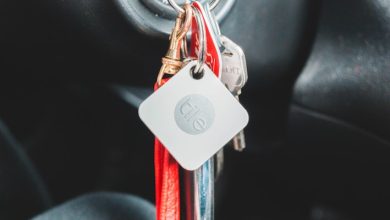Using Cold Storage to Keep Your Private Keys Safe

- Understanding the importance of private keys in cryptocurrency
- Exploring the risks of storing private keys online
- The benefits of using cold storage for securing your private keys
- A step-by-step guide to setting up cold storage for your private keys
- Comparing different types of cold storage solutions for private keys
- Tips for safely storing and managing your private keys offline
Understanding the importance of private keys in cryptocurrency
The private key is a crucial component in the world of cryptocurrency. It is essentially a secret code that allows you to access your digital assets, such as Bitcoin or Ethereum. Without your private key, you would not be able to send or receive funds, making it essentially the key to your virtual safe. It is important to keep your private key secure at all times to prevent unauthorized access to your funds.
When you use cold storage to keep your private keys safe, you are essentially storing them offline, away from the internet. This adds an extra layer of security as it reduces the risk of hacking or theft. By understanding the importance of private keys in cryptocurrency, you can take the necessary steps to protect your assets and ensure that only you have access to them.
Exploring the risks of storing private keys online
When considering where to store your private keys, it is essential to explore the risks associated with keeping them online. Storing private keys online can make them vulnerable to hacking and unauthorized access. While online platforms may offer convenience and accessibility, they also pose a higher risk of security breaches. Hackers can exploit vulnerabilities in online storage systems to steal private keys, compromising the security of your cryptocurrency assets.
Furthermore, relying on online storage for private keys means placing trust in third-party providers to keep your information secure. However, these providers may not always prioritize security or may be subject to data breaches themselves. In such cases, your private keys could be exposed to malicious actors, leading to potential loss of funds.
To mitigate these risks, many cryptocurrency investors opt for cold storage solutions. Cold storage involves storing private keys offline, away from potential cyber threats. By keeping private keys on physical devices such as hardware wallets or paper wallets, investors can significantly reduce the risk of unauthorized access to their assets. While cold storage may require more effort in terms of managing and accessing private keys, the added security it provides is invaluable in protecting your cryptocurrency holdings.
In conclusion, while storing private keys online may offer convenience, it also comes with inherent risks. To ensure the security of your cryptocurrency assets, consider using cold storage solutions that keep your private keys offline and out of reach of hackers. By prioritizing security over convenience, you can safeguard your investments and have peace of mind knowing that your private keys are safe and secure.
The benefits of using cold storage for securing your private keys
One of the most secure ways to store your private keys is by using cold storage. Cold storage involves keeping your private keys offline, away from any potential online threats or hacking attempts. There are several benefits to using cold storage for securing your private keys:
- Enhanced Security: By keeping your private keys offline, you significantly reduce the risk of them being compromised by hackers or malware.
- Protection Against Cyber Attacks: Cold storage protects your private keys from online threats such as phishing attacks, ransomware, and other malicious activities.
- Prevention of Unauthorized Access: Storing your private keys in cold storage ensures that only you have physical access to them, reducing the chances of unauthorized access.
- Peace of Mind: Knowing that your private keys are safely stored offline can give you peace of mind and confidence in the security of your digital assets.
- Long-Term Storage: Cold storage is ideal for long-term storage of private keys, ensuring they remain safe and secure for extended periods.
Overall, using cold storage for securing your private keys is a highly effective way to protect your digital assets from online threats and ensure peace of mind when it comes to the security of your cryptocurrency holdings.
A step-by-step guide to setting up cold storage for your private keys
Setting up cold storage for your private keys is a crucial step in ensuring the security of your cryptocurrency holdings. Here is a step-by-step guide to help you do so:
- Start by obtaining a hardware wallet, such as a Ledger or Trezor. These devices are specifically designed to securely store private keys offline.
- Once you have your hardware wallet, initialize it according to the manufacturer’s instructions. This typically involves setting up a PIN code and writing down a recovery seed phrase.
- Transfer your cryptocurrency funds to your hardware wallet by following the wallet’s specific deposit instructions. This will ensure that your private keys are no longer stored on an internet-connected device.
- Store your hardware wallet in a safe place, such as a secure location in your home or a safety deposit box. Make sure to keep your recovery seed phrase in a separate, secure location.
- Regularly update the firmware on your hardware wallet to ensure that it is protected against any potential security vulnerabilities. This will help to keep your private keys safe over the long term.
By following these steps, you can set up cold storage for your private keys and have peace of mind knowing that your cryptocurrency holdings are secure.
Comparing different types of cold storage solutions for private keys
When it comes to safeguarding your private keys, there are various cold storage solutions available for you to choose from. Each type of cold storage solution offers its own unique benefits and drawbacks, so it’s essential to compare them to determine which one best fits your needs.
One common type of cold storage for private keys is hardware wallets. Hardware wallets are physical devices that store your private keys offline, making them less susceptible to hacking or online attacks. These wallets are typically encrypted and require a PIN code or passphrase to access your keys, providing an extra layer of security. However, hardware wallets can be costly compared to other cold storage options.
Another cold storage solution for private keys is paper wallets. Paper wallets involve printing out your private keys and storing them in a secure physical location, such as a safe or vault. While paper wallets are inexpensive and easy to create, they can be vulnerable to physical damage, theft, or loss if not stored properly. Additionally, accessing your keys from a paper wallet can be cumbersome and time-consuming.
A third option for cold storage of private keys is using a dedicated computer or offline device. By creating an air-gapped system that is never connected to the internet, you can securely store your private keys offline. This method provides a high level of security but may require technical expertise to set up and maintain. Additionally, dedicated offline devices can be expensive and may not be practical for all users.
In conclusion, comparing different types of cold storage solutions for private keys is crucial in determining the best option for your needs. Whether you choose a hardware wallet, paper wallet, or dedicated offline device, prioritizing security and convenience is key to keeping your private keys safe from unauthorized access or theft.
Tips for safely storing and managing your private keys offline
When it comes to storing and managing your private keys offline, there are several important tips to keep in mind. First and foremost, it is crucial to ensure that your private keys are stored in a secure location that is not easily accessible to others. This could be a safe deposit box, a safe at home, or even a secure hardware device specifically designed for storing private keys.
Additionally, it is important to regularly back up your private keys to prevent any potential loss. Consider creating multiple copies of your private keys and storing them in different secure locations. This way, if one copy is lost or damaged, you will still have access to your private keys.
Another important tip is to never store your private keys on a device that is connected to the internet. This could make your private keys vulnerable to hacking or theft. Instead, opt for offline storage solutions such as cold storage wallets or paper wallets.
Lastly, it is essential to keep your private keys confidential and to never share them with anyone else. Your private keys are essentially the keys to your digital assets, so keeping them private and secure is of the utmost importance.



